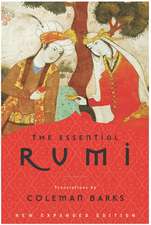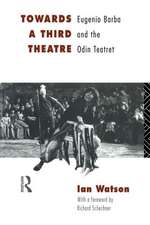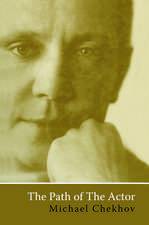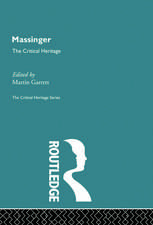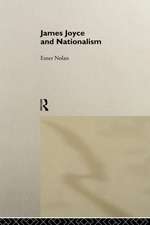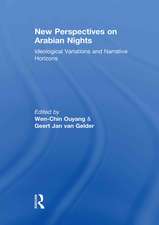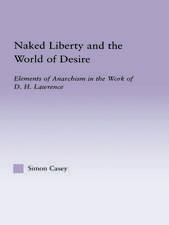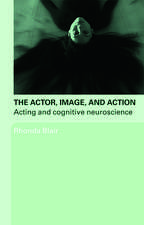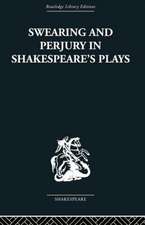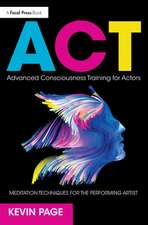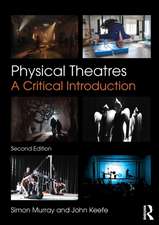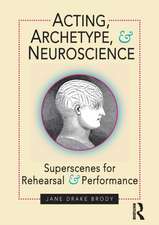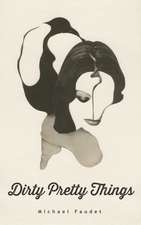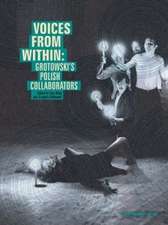Gardzienice: Polish Theatre in Transition
Autor Paul Allainen Limba Engleză Paperback – 25 feb 1998
This is one of the first detailed attempts to assess developments in Polish experimental theatres since 1989. The author questions whether those artists can maintain their vision in the face of Poland's economic difficulties and increased commercialization of the arts.
| Toate formatele și edițiile | Preț | Express |
|---|---|---|
| Paperback (1) | 352.76 lei 6-8 săpt. | |
| Taylor & Francis – 25 feb 1998 | 352.76 lei 6-8 săpt. | |
| Hardback (1) | 1005.01 lei 6-8 săpt. | |
| Taylor & Francis – 25 feb 1998 | 1005.01 lei 6-8 săpt. |
Preț: 352.76 lei
Nou
67.50€ • 72.18$ • 56.28£
Carte tipărită la comandă
Livrare economică 17 aprilie-01 mai
Specificații
ISBN-10: 9057021064
Pagini: 202
Ilustrații: 1
Dimensiuni: 174 x 246 x 11 mm
Greutate: 0.37 kg
Ediția:1
Editura: Taylor & Francis
Colecția Routledge
Locul publicării:Oxford, United Kingdom
Notă biografică
Paul Allain is a lecturer in Drama and Theatre Arts at Goldsmiths College, University of London. As a movement director he has collaborated with Katie Mitchell for many years and has trained actors at the Royal Shakespeare and Royal National Theatre companies for productions including The Dybbuk, Ghosts, Rutherford and Sons, The Machine-Wreckers and Henry IV Part 3. His own company, Bodywork, had its première at Sadler's Wells' Mosaics Festival in 1996. Dr Allain is co-editor with Professor Vera Gottlieb of the forthcoming Cambridge Companion to Chekhov.
Recenzii
"Allain successfully evokes the intensity of these producitons....[A] well-researched and authoritatively written study of a fascinating theatrical phenomenon."
"A much needed in-depth study of one of the world's most important experimental and community-based performance groups. Allain situates Gardzienice both as part of Poland and as part of world theatre. Even as he tells Gardzienice's history and practices, he relates the work to contemporary performance theory and the intercultural performance movement."
Cuprins
Introduction to the Series
List of Plates
Acknowledgements
Introduction
1. Polish Theatre - Romanticism Fades 2. The Rural Context and Gardzienice Village 3. Polish Society - The Art of Gathering 4. The Formation of Gardzienice - From Grotowski and Paratheatre 5. Training 6. Performances 7. European Parallels - Future Models 8. An Intercultural Assessment 9. Searching for a New Language
Conclusion
Postscript
Appendix: Polishing up on our Classics
Notes
Bibliography
Index
Descriere
In 1977, the Gardzienice Theatre Association, an experimental theatre company was founded in a tiny Polish village. By 1992 The Observer was hailing "Brilliant Gardzienice...and orgy of joy, anguish, prayer and lamentation performed in candlelight with hurtling energy and at breakneck speed...Physically reckless, thrillingly well sung...On no account to be missed. " Today the Gardzienice Theatre Association is hailed as Poland's leading theatre group, training Royal Shakespeare Company actors and touring the world. Paul Allain describes and analyses their sung performances, strenuous physical and vocal training, and anthropological fieldwork amongst marginalized European minorities.
This is one of the first detailed attempts to assess developments in Polish experimental theatres since 1989. The author questions whether those artists can maintain their vision in the face of Poland's economic difficulties and increased commercialization of the arts.

